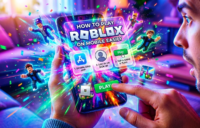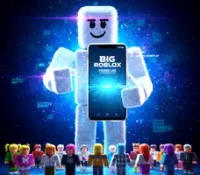Your LED Screen is Begging for This: 7 Inside Tips We Use Every Day for LED screen maintenance
Published: 29 Apr 2025
LED screen maintenance:-
Let’s be honest. When you bought that beautiful LED screen, whether it’s a giant TV or a crucial digital sign for your business, you were probably thinking about the stunning picture, not the upkeep. I get it. We see it all the time at our workshop. Folks bring in screens that are dim, discolored, or just not working right, and nine times out of ten, the problem could have been avoided with some simple, regular care.
Think of it like this: you wouldn’t buy a nice car and never change the oil. You’d end up with a huge repair bill. Your LED screen is the same. A little bit of love goes a long, long way in preventing headaches and saving you money down the road. This isn’t about being a tech whiz; it’s about knowing a few simple tricks that we use every single day. Let’s get your screen looking factory-fresh again.
The Ultimate Guide to LED Screen Maintenance
LED screens are everywhere-from massive billboards 🏙️ to home entertainment systems 🏠. But like any technology, they require proper care to function optimally. This comprehensive guide dives deep into LED screen maintenance, covering repair techniques, troubleshooting, longevity enhancement, and cutting-edge manufacturing innovations. Let’s explore how to keep your LED screens shining bright!
If you know about LED Display Materials click here.

Why LED Screen Maintenance Matters
LED screens are investments. Proper maintenance ensures:
- Longer lifespan (up to 100,000 hours with care!)
- Reduced repair costs
- Consistent image quality
- Energy efficiency
Neglecting maintenance can lead to dead pixels, color shifts, and even total failure. Let’s break down the essentials!
1. The Right Way to Clean Without Leaving a Streak
This is where most people go wrong straight away. They grab the first spray bottle they see.
- Forget the Glass Cleaner: I can’t stress this enough. Those ammonia-based cleaners are terrible for the special coatings on your screen. They create a nasty haze over time that you can’t fix.
- Your New Best Friend: A dry, microfiber cloth. That’s it. For most dust, a gentle wipe is all you need. If there’s a sticky fingerprint, barely dampen a corner of the cloth with a bit of distilled water (tap water can leave spots) and gently wipe.
- The Golden Rule: Never, ever spray anything directly onto the screen. Always put the solution on the cloth first. This keeps liquid from sneaking into the edges and causing real damage.
2. Keep It Cool, Or Else
Heat is the silent killer of electronics. Your LED screen generates it, and it needs to get rid of it.
- Check the Vents: Take a quick look at the back of your screen. See those slotted vents? Make sure they aren’t clogged with dust or blocked by a wall. Your screen needs to breathe.
- Sunlight is a Double Whammy: Putting your screen in direct sunlight not only makes the picture hard to see but also bakes the internal components. It’s like leaving your laptop in a hot car—it just shortens its life.
- Listen to the Fan: If your screen has a fan, you should hear a gentle whir. If it starts to sound like a grumpy lawnmower, it’s struggling, and that’s a sign things are getting too hot inside.
3. Please, Stop Turning It On and Off
I know it feels like you’re saving energy, but constantly power cycling your screen is hard on it.
- The Power Surge: Every time you flip the switch, a jolt of electricity runs through all those delicate components. Doing this repeatedly stresses them out.
- Just Let It Sleep: If you’re stepping away for a meeting or a lunch break, just let the screen go into standby or sleep mode. It’s designed for that. It’s much gentler than a full shutdown.
- Overnight is Fine: Obviously, turning it off at the end of the day or for a long weekend is perfectly fine and recommended. We’re talking about the habit of turning it off for just 15 minutes.
4. Give It Some Personal Space
This one is simple but so often ignored.
- Don’t Hug the Wall: That clearance listed in the manual? It’s not a suggestion. If it says to leave 4 inches of space, leave it. Those rear vents need room to exhaust hot air.
- Keep Other Gadgets Away: Don’t stack your cable box, game console, or other hot-running electronics right on top of or directly against your screen. They just add more heat to the area.
- Dust is the Enemy: More space around the screen means better airflow, which naturally means less dust settling on those crucial vents.
5. Be Your Own Detective: Do a Weekly Check-Up
This takes two minutes and can save you a fortune by LED screen maintenance. Once a week, turn on your screen and really look at it.
- The White Screen Test: Pull up a plain white document or website. Look carefully for any dark spots (dead pixels) or discolored patches.
- Listen for Strange Noises: A healthy screen should be relatively quiet. Any new buzzing, humming, or clicking is a clue that something’s not right.
- Check the Whole Picture: Is the color consistent from edge to edge? Or does one side look a little yellow or blue? Noting this early helps us diagnose the issue faster.
6. When to Absolutely Call a Pro Like Us
We love DIY spirit, but some things are just not worth the risk.
- You Smell Something Burning: If you get a whiff of that sharp, electrical fire smell, turn the screen off at the wall immediately and give us a call. Don’t try to turn it back on.
- There’s Physical Damage: A cracked screen or a big dent in the cabinet isn’t a cleaning issue. It needs professional hands to assess and repair.
- A Whole Section is Out: If an entire chunk of the screen is black or flickering wildly, it’s likely an internal power or cable issue. This is where our expertise and the right tools come in.
7. It’s All About Making It Last
At the end of the day, this isn’t just about a clean screen today. It’s about making sure your investment is still working perfectly three, five, or even seven years from now. We’ve seen screens that are treated well last more than twice as long as ones that are ignored.
Conclusion
Maintaining an LED screen isn’t rocket science by LED screen maintenance , but it does require consistency and attention to detail. By following these seven steps, you’ll not only extend your screen’s lifespan but also ensure it always looks its best. Remember, a little effort today saves you from expensive repairs tomorrow. Start implementing these tips now, and enjoy a brighter, sharper display for years to come!
10 FAQs with Detailed Answers about LED screen maintenance
Hands down, a soft, dry microfiber cloth. It’s perfect for dust and, when slightly dampened, for fingerprints. Avoid paper towels at all costs—they scratch.
That’s likely a dead pixel. It’s a single tiny light that has burned out. While sometimes fixable with special software, often it’s a small flaw you may learn to live with unless it spreads.
Absolutely! Most have an “Energy Saving” or “Auto Power Off” feature. Use it! This automatically puts the screen to sleep during inactivity, saving energy and reducing wear.
If the area around the screen feels unusually warm to the touch or the fans are constantly running loudly, it’s a sign it’s working too hard to cool down. Check for blocked vents.
The very first thing to check is all your cables. Ensure every HDMI or power cable is pushed in firmly at both ends. A loose connection is the most common cause of flickering.
For digital signage, yes, they’re built for it, but they must be on a strict LED Screen Maintenance schedule. For a TV at home, it’s best to turn it off when not in use to maximize its lifespan.
Generally, no for everyday cleaning. However, if you ever open a panel to check internal components (which we don’t recommend), use an anti-static wrist strap to protect the circuits.
This is when a faint ghost of a previous image stays on the screen. It’s rare on modern LEDs but can happen. Prevent it by avoiding leaving a static image (like a news ticker) on for days.
We strongly advise against it. Working with internal power components involves high voltage risks and requires specific technical knowledge to do safely and correctly.
Because we have the specific tools and training to diagnose issues correctly without causing further damage. We can spot a failing component before it fails completely, saving you time and money.

- Be Respectful
- Stay Relevant
- Stay Positive
- True Feedback
- Encourage Discussion
- Avoid Spamming
- No Fake News
- Don't Copy-Paste
- No Personal Attacks



- Be Respectful
- Stay Relevant
- Stay Positive
- True Feedback
- Encourage Discussion
- Avoid Spamming
- No Fake News
- Don't Copy-Paste
- No Personal Attacks





